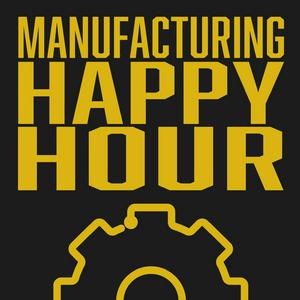A lot of manufacturing companies can build insanely complex and intricate things, but far fewer are set up to handle what happens once customers start buying. So, what happens when those products start selling at scale, contracts get longer, and customers get bigger?
In this episode, we’re joined by Chris Hale, CEO and Founder at Klear, to uncover a side of manufacturing that often gets overlooked: how money moves through industrial businesses.
The conversation explores how money flows when deal cycles are long, customers are global, and planning starts to feel less like spreadsheets and more like a 3D chessboard. Trade finance sits underneath a lot of this activity, shaping how physical infrastructure gets built and how manufacturers grow.
We also hear about Chris' experience touring in a band, and how this shaped the way he thinks about coordination, timing, and handoffs, ideas that show up repeatedly in how he approaches financial systems for manufacturers today.
In this episode, find out:
How Chris Hale moved from touring in a band to working in finance and building fintech tools for industrial companies
Why trade finance underpins everything from shipping containers to large-scale infrastructure projects
What orchestration means in a manufacturing context, and why clean handoffs matter
Why managing money often becomes harder as companies grow and demand increases
How global volatility, customer behaviour, and innovation shape financial decision-making
Where financial visibility tends to break down inside fast-growing manufacturers
Why tying money directly to physical execution changes how companies scale
Enjoying the show? Please leave us a review here. Even one sentence helps. It’s feedback from Manufacturing All-Stars like you that keeps us going!
Tweetable Quotes:
“Trade finance as an asset class is fascinating because it’s how the world gets built through money. If you see a boat full of shipping containers, that boat is trade finance. If you see a data center being built, everything going into it is trade finance.”
“The board keeps moving. You’ve got government customers, supply chain disruptions, strikes, geopolitics, and it becomes incredibly difficult to plan with confidence.”
“Manufacturer are doing all this precision work, but when it comes to their money, they’re doing dead reckoning. They’re looking at the sun and guessing, and that’s where things fall apart.”
Links & mentions:
Klear Inc., a payment and working capital infrastructure provider that’s designed specifically for modern industrial companies. The platform helps manufacturers gain clearer visibility into cash flow, manage risk across long contracts, and better align financial operations with physical execution.


